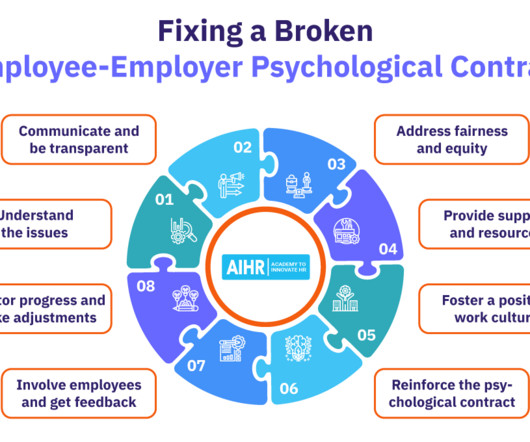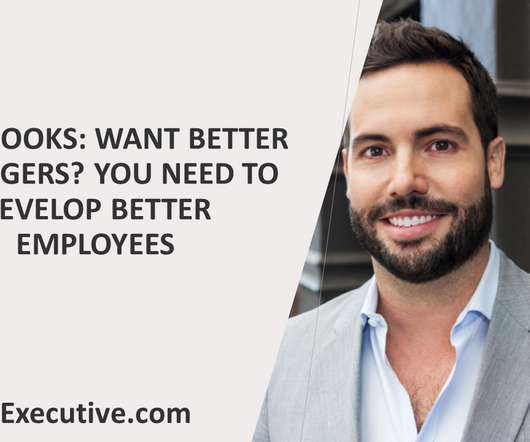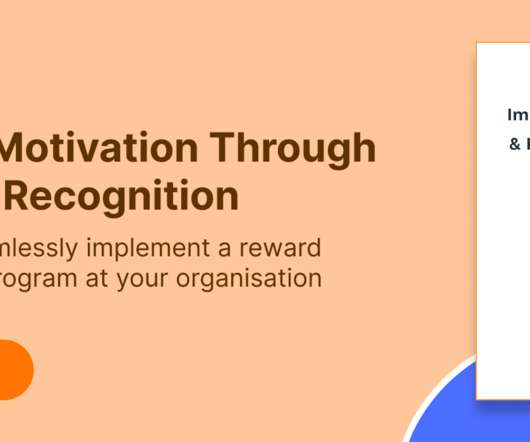What Is a Psychological Contract: Types With Examples
Analytics in HR
JUNE 27, 2023
The psychological contract significantly affects what keeps employees engaged and motivated. One of the most challenging factors of the psychological contract is that it’s unwritten, intangible and sometimes based on unarticulated expectations that employers and employees hold.





























Let's personalize your content